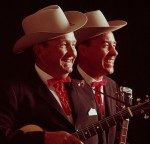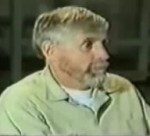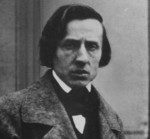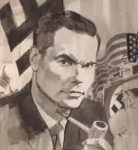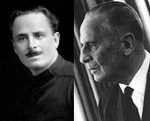 This month’s special program comprises three audio tracks of Oswald Mosley. It will be broadcast each Wednesday, Friday, and Sunday starting at 9PM ET and streaming until the next scheduled program.
This month’s special program comprises three audio tracks of Oswald Mosley. It will be broadcast each Wednesday, Friday, and Sunday starting at 9PM ET and streaming until the next scheduled program.
Oswald Mosley, via Metapedia:
Sir Oswald Ernald Mosley, 6th Baronet (November 16, 1896 – December 3, 1980) was a British politician and founder of several nationalist organizations, the most notable being British Union of Fascists and Union Movement. Educated at Winchester and Sandhurst he fought with the 16th Lancers on the Western Front during the First World War. He later transferred to the Royal Flying Corps but was invalided out of the war after a plane crash in 1916.
The first selection is Mosley Set to Music, via National-Socialist Worldview:
Sir Oswald Mosley (1896 -1980) was the leader of the British Union of Fascists, and a friend of National-Socialist Germany. (He was also an hereditary baronet and fourth cousin of the mother of Queen Elizabeth II.)
The Westminster Gazette in the 1920s called Mosley “the most polished literary speaker in the Commons, words flow from him in graceful epigrammatic phrases that have a sting in them for the government and the conservatives. To listen to him is an education in the English language, also in the art of delicate but deadly repartee. He has human sympathies, courage and brains.”
The original message was recorded by Mosley (without musical backing) in 1938. The original text appears below. Notably omitted from the musical adaptation is Mosley’s reference to the national-socialist and also every specific reference to Britain.
In this brief speech Mosley advocates a revolutionary spirit and calls for revolution by Britons.
The audio itself is blood axis – sarabande oratoria, on YouTube. The length is 4:05, including music.
The second selection is Oswald Mosley Speaks for European Unity, from YouTube. The length is 10:08. The audio is of relatively poor quality, including a few lengthy drop outs. The uploader’s description:
Oswald Mosley Leader of Union Movement speaks for EUROPE A NATION in 1951.
At the start Mosley identifies his opponents:
I speak for Union Movement. We stand for a change in this country. For that reason we are either abused or boycotted by those who want to keep things as they are. The financiers, the vested interests and the old parties who serve them hate our movement and use their money power to destroy us. They control directly or indirectly the press, the cinema and the radio. That is why you hear nothing of union movement except silly abuse which has no relation to truth.
The third selection is Oswald Mosley – Make Europe A Nation 1964, from YouTube. The length is 44:29. The uploader’s description:
Oswald Mosley gives a firey speech in 1964 about his vision for a united Europe. This speech was given some 18 months after the Venice Conference and his meeting with the heads of numerous European political parties which called for the formation of a National Party of Europe.
According to Metapedia, the National Party of Europe was created by the Declaration of Venice, an initiative undertaken by a number of political parties in Europe during the 1960s to help increase cross-border co-operation and work towards European unity. The idea of an NPE began when Oswald Mosley launched his Europe a Nation campaign after World War II.
More information about Mosley is available from oswaldmosley.com. Most notable is the special emphasis placed on Mosley’s attitudes regarding jews. Near the top of the list of Top 10 Lies about Oswald Mosley:
2. Oswald Mosley and his supporters were anti-Semitic.
Oswald Mosley never criticised anybody for what they were born. But he didn’t believe that Jews were the only people in the world immune from criticism. Oswald Mosley criticised some Jews for what they did, not all Jews for what they were. That’s why Jews like John Beckett (British Union Director of Publications), Bill Leaper (Editor of the Blackshirt) and Harold Soref (later Tory M.P. for Ormskirk), and the Jewish boxer Kid Lewis had no problem supporting him.
This item links to an article titled Antisemitism – British Union and the Jews. It is without attribution and not dated, but presumably represents Mosley’s position at some time after World War II. It begins:
More drivel is talked about the Jews than most subjects; both ways. The views that all Jews are born wicked, or that all Jews should be the sacred objects of the system, seems to me equal nonsense. I am neither an anti-Semite, nor a sycophant of Semites. The attitude of our movement has been both consistent and intelligible throughout. We have never attacked any man on account of race or religion, and we never shall. But we attack any man, whatever his race or religion, who acts against the interests of Britain or Europe; particularly Britons who ought to know better than to serve alien interests. It is a straightforward attitude, which has been formed by clear principles.
Why then have we been involved in clashes with Jewish interests, and why are so many Jews violently against us? The answers again are clear. Before the war I believed that certain great Jewish interests were trying to involve us in war, not in a British, but in a Jewish quarrel: I still believe it. The reasons for our belief and for the Jewish action are equally intelligible. It is true that a considerable number of Jews were having a bad time in Germany, and it can also be argued that if a similar number of Englishmen had been having an equally bad time in Germany, there would have been a demand among many Englishmen for war against Germany. But it is beyond question from the evidence of the period, that powerful Jewish interests were trying to produce war between Britain and Germany. They made it their business to start a war in the Jewish interest. I, and my friends, made it our business to stop that war, in British interest. That led to a head-on clash, and I still think that we were right in doing our utmost to prevent that war.
The issues between us, and those Jews before the war, were therefore quite simple and clear. They wanted to make a war, and we wanted to stop it. That is the long and the short of the whole matter. There was no question of racial persecution on our part. That was entirely contrary to our principles, which I put on public record at the time. We British were running a great Empire composed of many different races, and any suggestion of racial persecution would have broken it up. For practical, as well as moral reasons, it would have been the gravest error for us to pursue a policy of any kind of racial persecution. The Germans had entirely different national problems, as well as in some respects, a different national character, which was derived from a diversity of historic experience.
Our duty then, was to hold together and develop a multi-racial Empire.
This is doublethink. Mosley presented (and perhaps imagined) himself as neutral regarding jews, yet in the very act of doing so demonstrated a special regard for them and recognition of their special antagonism for himself and his movement.
Another example of Mosley’s attitudes about jews is captured in the article William Buckley Interview, which took place four years after Mosley published his autobiography, My Life. The text of the interview is also available (in Microsoft Reader eBook format) via archive.org, which describes it as a transcript of the Firing Line television program broadcast on 9th April 1972.
Buckley’s very first concern is to explore how Mosley’s fascism relates to the jews.
MR. BUCKLEY: . . . I was instantly struck by the especially laudatory notices given to [the book] in England by members of the left; for instance, Mr. Michael Foot, who called the book, “a dazzling gleam across the whole century. What Mosley so valiantly stood for could have saved this country from the hungry Thirties and from the Second World War”; and from R. H. Crossman, intellectual leader of the Socialist party (laughter), or so he is regarded, “Mosley was spurned simply and solely because he was right.” I think it would be instructive to explore the current and historical meaning of fascism, something we have yet to do on this program, and I want to begin with the understanding that we shall not devote anything like the entire program to it. By touching on racism and fascism, specifically on anti-Semitism and British fascism, I’d like to ask Sir Oswald: do you believe there is a nexus between the two ? anti-Semitism and fascism?
SIR OSWALD: No, none whatever. That was a purely German phenomenon and that really made the whole complication. Germany, of course, under Hitler, was definitely anti-Semitic. There’s no doubt about that whatever — none whatever. That’s all –
MR. BUCKLEY: You’re not going to dispute that?
SIR OSWALD: – too painfully clear. But in the other countries where fascism occurred, in very different national forms, there was no question of it in the origin of the movement. Fascism was, essentially, a national creed — both its strength and its weakness – and, therefore, it took, in every country, a completely different form. And if you are running, as we hope to run, a multi-racial empire, you obviously cannot have a racialist policy. And the quarrel with certain Jewish interests, not with all, by any means, arose on quite different and much later questions.
As with Mosley’s article regarding “anti-semitism”, the substantial, very earnest expressions of deference to or concern for the best interests of jews collectively, as jews, contradicts the very idea that the jews can or should be treated as individuals.
This portion of the exchange is particularly cringe-worthy:
MR. BUCKLEY: Well, now, is it your point that a national minority, whether religious or racial, does not have the right to attempt to mobilize national energy to come to the rescue of a persecuted people in other parts of the world?
SIR OSWALD: I think he’s absolutely, perfectly right in stating his opinion. Anybody should be allowed to state his opinion, but the answer must be allowed to be put. And my answer was that I was against a war with Germany, and I think most of the English were at that time. I quite understood why they were agitating in favour of a war, but the interest of the majority was against it and, therefore, I pointed out that certain Jewish interests were trying to produce a war, which was against the interests of Great Britain.
MR. BUCKLEY: Well, why would you say that it was their Jewishness that was a factor? Why wouldn’t it simply be their humanitarianism? Why shouldn’t a Jew say, “We have reason to believe that this madman in Germany is not only going to threaten the peace in Europe, but is also going to engage in large-scale genocidal ventures which have already been adumbrated, and it is the responsibility of a free and humanitarian people to do what they can to stop him”? Does this become Jewish sectarianism?
SIR OSWALD: No, you’re perfectly right.
Buckley argues that jews are motivated to fight by their jewishness but also that it is the responsibility of “free and humanitarian people” to fight for them too.
The oxymoronic term “national minority” is indicative of this doublethink. In the context of nations and nationalism it is especially obvious that jews think of themselves as jews first and foremost, that jews are naturally distinct from every other nation and, because they are self-obsessed and parasitically bent on infiltration and manipulation of others, are ultimately hostile to everyone else’s nationalism. From their own behavior it is clear that every member of the political elite understands this, more or less. Some, like Mosley, believe they can ignore or finesse this inconvenient fact. Others, like Buckley, explicitly embrace and defend and excuse jews for their hostility.
That non-jews behave so obsequiously with regard to jews – either minimizing their part or joining with them – is an indirect but telling measure of jewish power.
Mosley’s autobiography is available as a PDF via nazi.org.uk. Kerry Bolton reviews Sir Oswald Mosley’s My Life at Counter-Currents Publishing.
(Note: There is no audio download for this program – please tune in via the MP3 Stream.)










